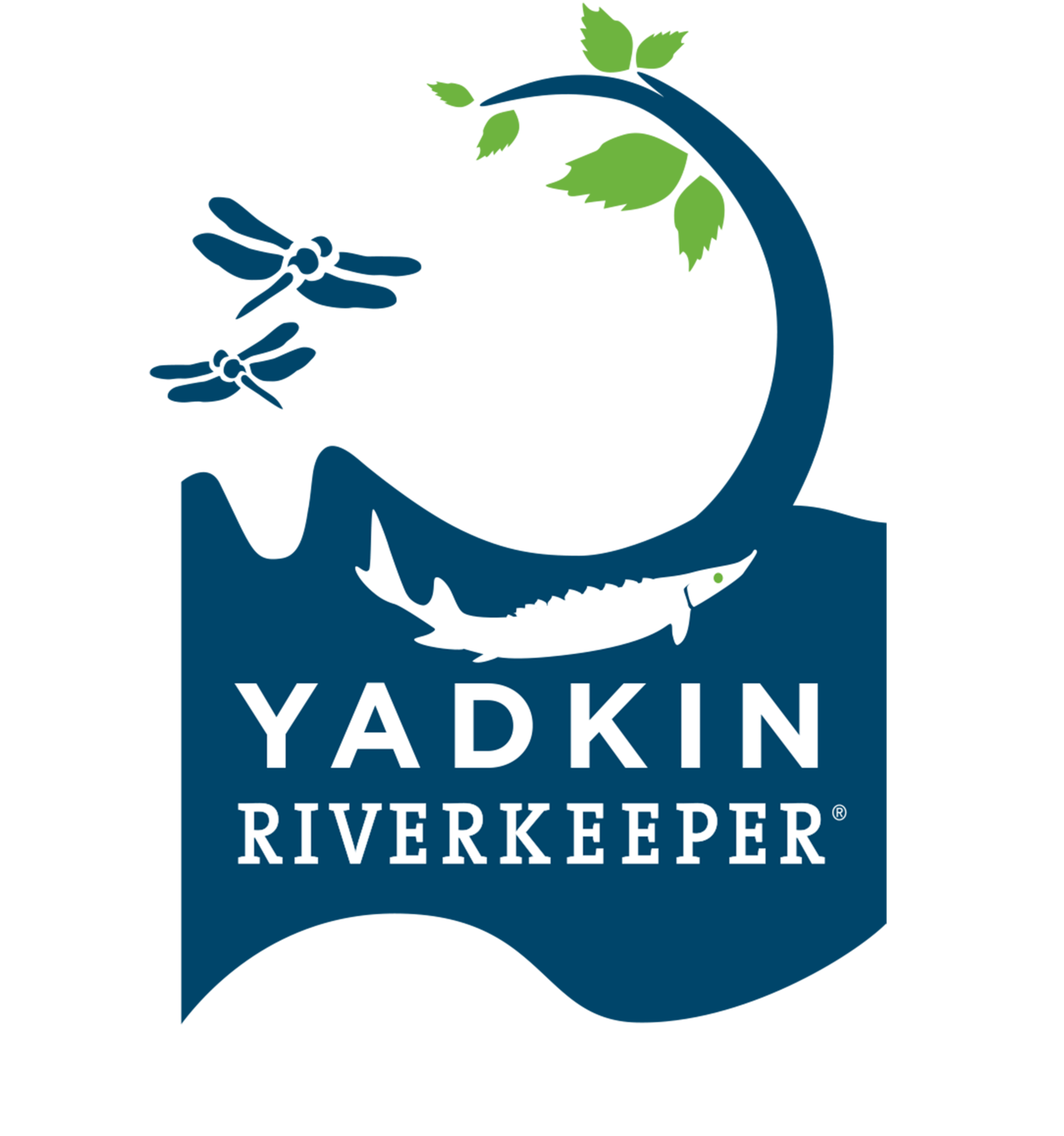July has been a busy month for YRK on the advocacy front. See the update below from YRK Riverkeeper and executive director Edgar Miller. The full update includes links to action alerts and other information that you can use to advocate on behalf of clean water.
NC Environmental Management Commission Proposes Chlorophyll-a Standard for High Rock Lake – At its July meeting and with the support of Yadkin Riverkeeper, the NC Environmental Management Commission (EMC) unanimously adopted a proposal to establish a new, site-specific chlorophyll-a (chl-a) standard for High Rock Lake. The proposed standard would be 35 micrograms/L of chl-a vs. the current statewide standard of 40 micrograms/L. This proposal is the culmination of more than 25 years of research and studies that found a correlation between chl-a levels and potential cyanobacteria that produce cyanotoxins, which can lead to harmful algal blooms or HABs. The proposed standard now goes to public comment later this Fall and once adopted, can be used to leverage reductions in nutrient pollution upstream if the standard is not met.
Riverkeepers Comment on State Water Quality Standards as Part of Triennial Review – On July 20, Yadkin Riverkeeper and other Riverkeepers from around the state commented during a public hearing on the state’s Triennial Review of water quality standards required by the US Environmental Protection Agency (EPA). In addition to supporting the establishment of a statewide e. coli standard, a standard for poly-fluorylalkal substances (PFAs) and a recreational use standard for cyanotoxins associated with HABs, YRK commented on the proposed revision that would allow compliance with the cyanide standard to be based on the measurement of free cyanide or total cyanide. This change is of particular interest to YRK because it relates to ongoing concerns with Alcoa’s Badin Business Park stormwater discharge into Badin Lake and Little Mountain that contains cyanide. YRK and commenters from Protect Badin Lake recommended establishing a standard for both free and total cyanide to provide the greatest level of protection for public health and the environment. YRK supports measuring free cyanide to ensure we are testing for the most bioavailable and potentially toxic forms of cyanide and maintaining the total cyanide measurements to ensure continuity and consistency with current permit conditions and historical monitoring data. To add your voice to those who want to see the state set stronger water quality standards please send in this Action Alert on the Triennial Review before the comment deadline on August 3. The action alert contains Waterkeepers Carolina’s top three statewide priorities, but you can add a sentence about testing for both free AND total cyanide.
Yadkin Riverkeeper and Concerned Citizens Meet With Local Legislative Delegation and Governor’s Staff to Share Concerns About Alcoa Badin Business Park – On July 14, Yadkin Riverkeeper led a delegation of citizens from Protect Badin Lake, Concerned Citizens of West Badin, and the NC Environmental Justice Network to meet with the local legislative delegation from Montgomery and Stanly Counties and Governor Coopers’ senior environmental advisor. The group shared ongoing concerns about potentially toxic materials leaching into Badin Lake and Little Mountain Creek from hazardous waste sites in and around Alcoa’s retired aluminum smelting plant in Badin, now know as Badin Business Works. Yadkin Riverkeeper highlighted its long history of working with the Duke Environmental Law and Policy Clinic and the Southern Environmental Law Center to hold Alcoa accountable for its legacy of toxic pollution, while the grassroots organizations expressed their concerns and frustration about the lack of state action to address the problems. In response to these concerns, the NC Department of Environmental Quality (NCDEQ) recently launched a new Alcoa Badin Business Park Information webpage on its “Key Issues” website to provide a clearinghouse of information on the site’s history, ongoing regulatory issues and monitoring data. Also, at YRK’s and others’ requests, the NC Division of Water Resources recently announced it will be sampling Badin Lake and Lake Tillery, the drinking water supplies for Albemarle and Montgomery County respectively, for ambient levels of cyanide and fluoride as part of its five-year Yadkin Pee Dee Lakes assessment. The state last data collected on these contaminants of concern (CoC) in 2002.
Waterkeepers Carolina Issues Action Alert on Poultry Waste Reporting (H 913) – As part of YRK’s statewide advocacy efforts we supported the introduction of H 913 to require unregulated, large-scale poultry producers to submit electronic copies of their waste utilization plans (WUP) to NCDEQ for review. Under current law, these large operators are required to have a WUP, but they are not required to share them with NCDEQ or the public and are further shielded from public scrutiny by recently passed confidentiality laws. As a result, there is little or no oversight of what happens with the tremendous volumes of dry litter poultry waste generated by these facilities. USDA estimates there are 200 million chickens raised in the Yadkin watershed annually. While the legislation did not meet deadlines for passage in either the state House or Senate, it does include a $10,000 appropriation to assist poultry growers in complying with the new law. YRK helped draft an action alert asking that the funding and provisions of H 913 be incorporated in the state budget There’s still time to send your NC House member the H 913 Action Alert as the House is still working on its version of the state budget and not expected to approve its version of the budget until the second week of August.

